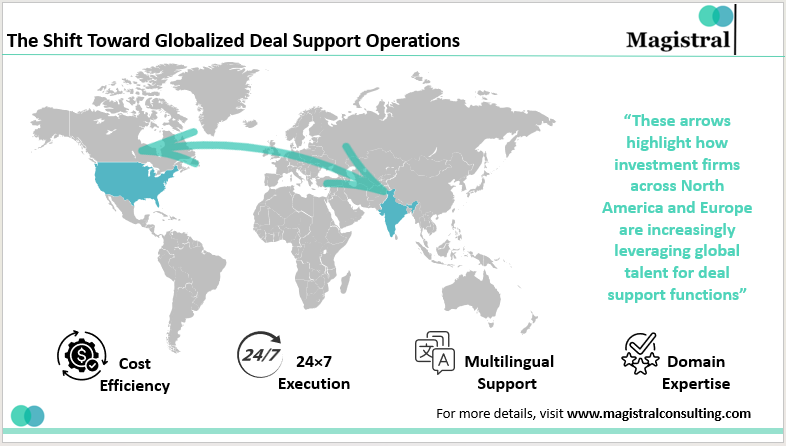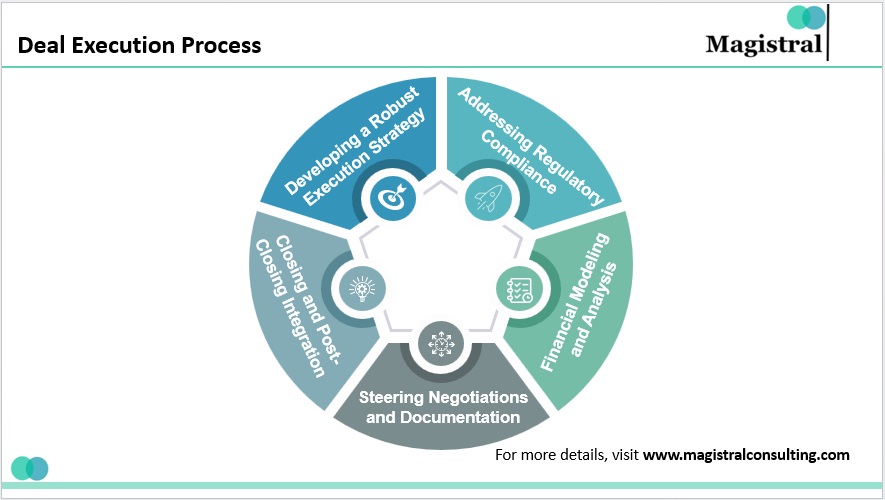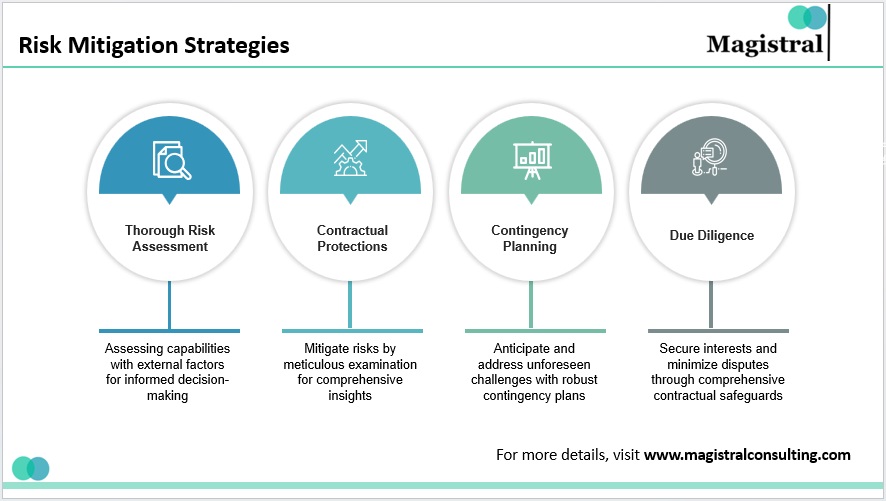In the fast-changing world of global business today, deal support is no longer a behind-the-scenes operation—it is becoming the strategic backbone of mergers, acquisitions, and investment transactions. The acceleration of complexity, availability of data, and stakeholder expectations is transforming the sourcing, analysis, and execution of deals.
A Shifting Market Landscape
The global M&A market began to display cautious optimism after its subdued performance in 2023. Bain & Company’s 2024 Global M&A report predicts total deal volume will experience a 15% year-over-year increase in 2025, especially within technology, renewable energy, and digital health sectors. Private equity dry powder crossed the $3.9 trillion mark globally, highlighting the sheer volume of capital waiting to be deployed—making deal support more vital than ever.
The evolving expectations from investors, regulators, and boards now demand a more rigorous, agile, and insight-led approach to deal-making. This is where the future of this takes center stage.

Global M&A Trends and Sector-Specific Growth Forecast (2023–2025)
Key Trends Shaping the Future
There are several trends shaping the future:
AI and Automation in Deal Flow Management
With more artificial intelligence pouring into investment processes, deal support is being enriched with robust automation tools for screening, scoring, and forecasting. DealCloud, Affinity, and SourceScrub are among the platforms that are already employing natural language processing and machine learning to sift through huge amounts of company information to enable investors to hone in on potential targets with accuracy.
Example: Blackstone has been applying machine learning to analyze real estate investments by running various macroeconomic scenarios—automating most of its risk analysis.
SOP-Based Deal Execution for Efficiency and Scale
Standard Operating Procedure (SOP)-driven execution has been an influential driver of consistent, reproducible performance through high-stakes transactions. Deal support in the future will look to increasingly utilize SOP frameworks as the way to oversee everything from target approach to ESG tick-boxes and regulatory filings.
SOPs will be infused into software-based tools and dashboards monitoring stage-wise performance indicators. Not only is it transparent, but clients also have auditability and control.
Rise of ESG-Driven Deal Viability
Environmental, Social, and Governance (ESG) frameworks are becoming the non-negotiable elements of investment decision-making. More than 70% of global institutional investors now view ESG performance as a key deal driver, reports PwC.
In the future, ESG analysis will incorporate predictive modeling, allowing investors to anticipate long-term influence on brand value, legal exposures, and shareholder opinion.
Case: BlackRock’s 2024 report highlighted its active portfolios beating benchmarks by 11% when ESG considerations were strictly factored in during deal consideration.
From Reactive to Predictive Deal Screening
Traditional screening has been largely reactive, waiting for leads to come in from intermediaries or cold calls. The future is predictive, using market intelligence, real-time industry signals, and keyword monitoring for acquisition opportunity identification prior to anything being public about their sale.
Any such tool using satellite data, social media sentiment, patent filings, and financial irregularities could vouch for distressed companies or innovative startups ready for acquisition.
Integrated Target Pipeline Management
Pipeline visibility is essential in situations where deals and evaluations are at a very high volume. Spreadsheets and CRMs fail here. Instead, the future is going to make place for end-to-end deal support platforms with centralized data, workflow automation, and real-time analytics.
Such platforms will not merely consolidate disparate sources of deals but will also allow more intelligent prioritization. It will be through AI-driven scoring models, pipeline bottleneck alert systems, and stage-by-stage KPI dashboards. As deal teams become more distributed and fast-paced, a common, intelligent platform ensures that no deal slips through the cracks. It also makes sure that teams utilize resources optimally at every stage of the deal cycle.
The Globalization of Deal Support Services
However, with remote working and digital collaboration tools, it has become globalized. Increasingly, investors in the United States are outsourcing target screening, profiling, and financial analysis work to groups in India and Eastern Europe. Deal support will move to the core of global operating models of PE, VC, and investment banking in the next couple of years.

The Shift Toward Globalized Deal Support Operations
This change not only lowers cost of operations but also enables dealmakers to leverage round-the-clock execution. It also deals with multilingualism and domain expertise talent across geographies. The future will witness the emergence of hybrid support models—blending onshore strategic guidance with offshore analytical execution. This will enable global deal support to be scalable as well as deeply embedded in investment processes.
Operational Process Outsourcing Post-Close
The role of deal support does not end at transaction close. More and more investors are relying on firms for post-deal integration, back-office support, and performance reporting. It is especially when it comes to smaller or bolt-on acquisitions.
>In the future, investors will require plug-and-play teams they can deploy at any phase of the investment life cycle. It ranges from due diligence to exit readiness.
The Evolving Strategic Role of Deal Support
Historically, it was always thought of as an overhead center. That perception is changing. In the present competitive age, data has taken the centre stage for competitive advantage. And with greater amounts of cross-border transactions and digital commercial transactions, support functions are becoming strategic assets.
Firms that provide the highest quality as early as in the beginning phases will see tangible improvements in:
Point of Time in Making Decisions
Conversion Rates of Deals
Risk-Adjusted Returns
Success in Post-Integration into Operations, Finances, or Assets
Future of Deal Support
The upcoming stage of deal support evolution demands intelligence in operations beyond mere speed and cost reduction. The new benchmarks now include strategic insights alongside ESG alignment and AI-led workflows with global scalability. Companies aiming to succeed in the M&A landscape beyond 2025 must treat a strategic overhaul of their deal support processes as a vital necessity.
Companies that establish future-proofed functions early—combining predictive analytics, templated SOPs, and cross-border execution models—position themselves well to unlock value through every phase of the deal process. From accelerated decision-making and enhanced deal conversion to better post-close integration and risk-adjusted returns. Strategic deal support will be a key driver of success in a more complicated, data-rich, and competitive world marketplace.
About Magistral Consulting
Magistral Consulting has helped multiple funds and companies in outsourcing operations activities. It has service offerings for Private Equity, Venture Capital, Family Offices, Investment Banks, Asset Managers, Hedge Funds, Financial Consultants, Real Estate, REITs, RE funds, Corporates, and Portfolio companies. Its functional expertise is around Deal origination, Deal Execution, Due Diligence, Financial Modelling, Portfolio Management, and Equity Research
For setting up an appointment with a Magistral representative visit www.magistralconsulting.com/contact
About the Author
The article is authored by the Marketing Department of Magistral Consulting. For any business inquiries, you can reach out to prabhash.choudhary@magistralconsulting.com
How is artificial intelligence transforming deal support?
AI is revolutionizing deal flow management by automating tasks like target screening, financial forecasting, and risk assessment. Tools like DealCloud and Affinity use machine learning and natural language processing to analyze large volumes of data, helping investors pinpoint relevant opportunities with greater speed and accuracy.
What role does ESG play in modern deal-making?
Environmental, Social, and Governance (ESG) factors have become critical in assessing deal viability. More than 70% of institutional investors now prioritize ESG performance. Future deal support will include ESG-focused predictive models to evaluate long-term impacts on reputation, compliance, and shareholder value.
Why are traditional deal screening methods being replaced?
Traditional methods rely heavily on reactive sourcing from intermediaries. The future lies in predictive screening, which uses market signals, social media sentiment, and real-time data to identify opportunities before they are publicly available. This proactive approach gives firms a competitive edge in sourcing high-potential deals early.
How are global teams reshaping the delivery of deal support?
Remote collaboration and outsourcing have enabled deal support to go global. U.S.-based investors are increasingly leveraging offshore teams in India and Eastern Europe for tasks such as profiling, due diligence, and analysis. This global model enhances scalability, reduces costs, and ensures round-the-clock execution.








